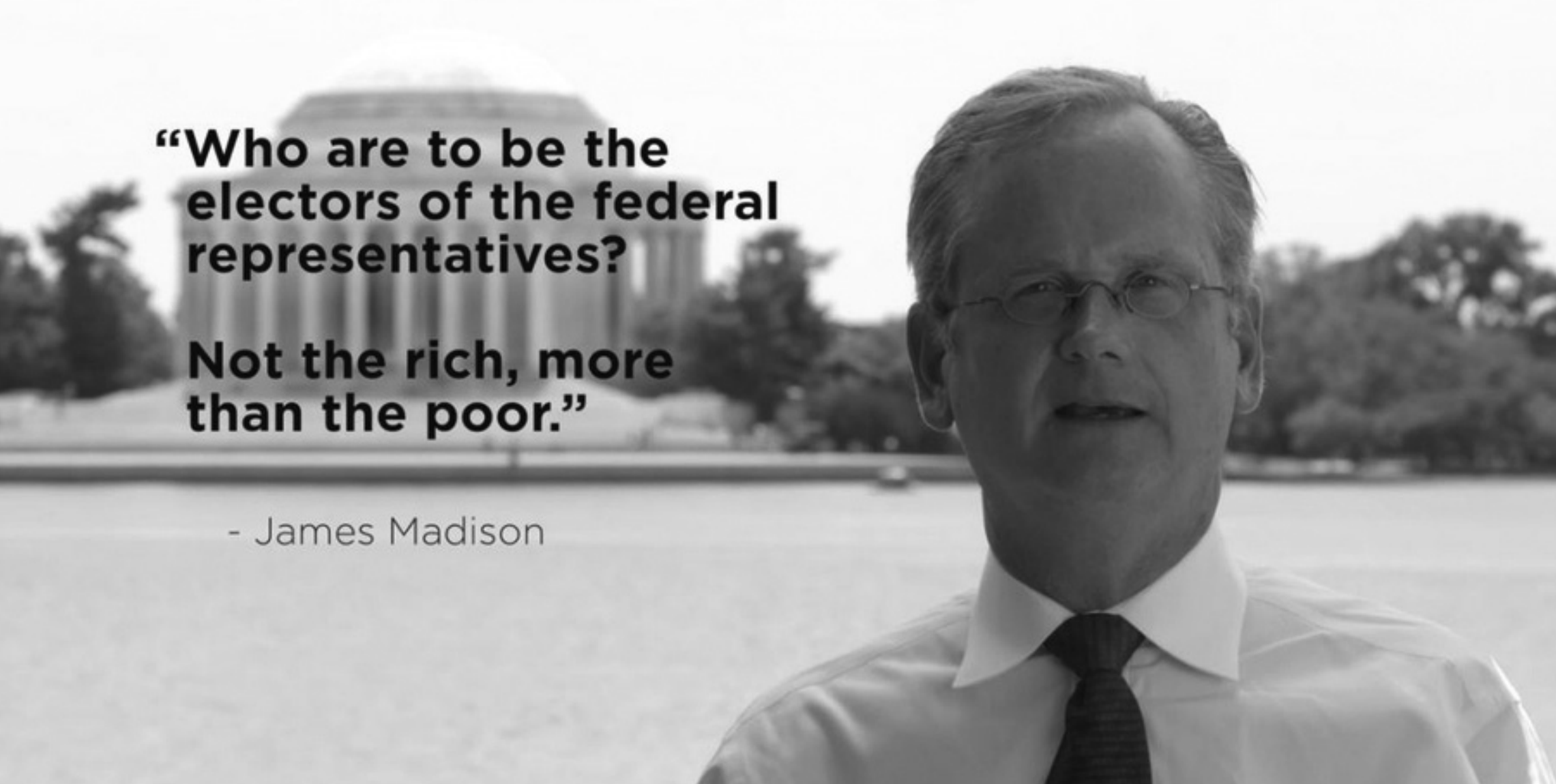If there is one lesson to be learned from Lawrence Lessig’s failed presidential campaign, it is that widespread public support for campaign finance reform does not translate to political success. Lessig, who dropped out on Tuesday, pledged to fight for the popular issue of reforming campaign finance laws but failed to gain a national platform. While the American public supports his cause, Lessig could not compete with his establishment counterparts who seem to have less interest in campaign finance reform.
“Polling data reported in the New York Times makes it very clear that political conservatives as well as moderates and liberals want to see a system of more equitable finance,” said Richard Painter, a professor at the University of Minnesota Law School and the Chief Ethics Lawyer for president George W. Bush from 2005 to 2007. The data Painter references shows that 84 percent of Americans believe money has too much influence on politics, and 98 percent believe that at least some changes must take place. Despite voicing this position, Lessig was unable to effectively gather support. “There are no candidates who are adequately addressing it,” said Painter.
Assistant Professor of Political Science Dr. Paul Jorgensen, of the University of Texas-Rio Grande, believes that campaign finance is a major issue for the current campaign cycle. “Bernie Sanders made it a focal point of his campaign,” said Jorgensen, a former colleague of Lessig. “Hillary Clinton…has made it a point of her campaign, but you don’t hear her talk as much about it,” said Jorgensen. With other candidates supporting campaign finance reform, Jorgensen said that one of Lessig’s biggest problems was distinguishing himself from them. “It was pretty clear that he was excluded from the first debate when some of his poll numbers clearly didn’t meet the threshold,” said Jorgensen, who said he believed that the Democratic Party did not want Lessig on the debate stage. “I wouldn’t go as far as to say that they didn’t support [Lessig’s] goals… but there has been criticism of their debate structure,” said Jorgensen. Despite gaining the requisite one percent in the polls that included his name, Lessig was excluded from last month’s Democratic Party debate. This exclusion from the debates almost certainly impacted Lessig’s ability to compete in the primary.
Lessig had initially pledged to resign from the presidency once he passed legislation reforming campaign finance laws. He also planned to refuse to discuss any other issue during the campaign in an effort to emphasize his commitment to his cause. Painter did not support this tactic, saying that Lessig “should have made clear he would serve as President and articulate his views on some of the other issues,” which he eventually did. While Lessig had hoped to show his resolve through this unconventional candidacy, Painter noted that such a tactic simply was not realistic for a national campaign.
If Lessig’s campaign did not provide the platform for campaign finance reform, Jorgensen believed that it would come from a “focus event,” or a major scandal that would bring the issue to public light. “You’re not going to see reform if politicians are the ones overseeing the reform,” said Jorgensen.
He highlighted that campaign finance was deeply tied to every other political issue from wealth inequality to climate change. “It can’t be separated from these larger issues… and we need to start addressing both.” While Lessig’s quest for the presidency may have concluded, it is clear that camapaign finance reform will still be part of the national conversation.



